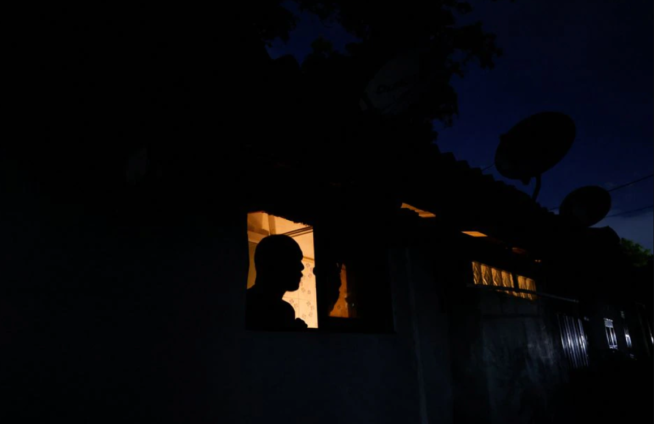A research and policy analyst at the Institute for Energy Security (IES), Xatse Derick Emmanuel, has clarified that Ghana's ongoing power instability, known as ‘dumsor’, predates the current gas supply challenges announced by WAPCo.
According to Mr. Xatse, the country has been dealing with a power generation deficit of approximately 600 MW since the start of the year.
His comments come in response to a joint statement by the Ghana Grid Company (GRIDCo) and the Electricity Company of Ghana (ECG), which announced a three-week interruption in power supply due to a reduction in gas supply from Nigeria.
GRIDCo and ECG attributed the intermittent power supply to maintenance work by a Nigerian gas supplier, which has led to a decrease in overall power generation capacity in Ghana, necessitating load management during this period.
However, Mr. Xatse emphasized that most of Ghana’s thermal plants are capable of operating on alternative fuels such as Light Crude Oil, Heavy Fuel Oil, or Liquefied Petroleum Gas.
He noted that only the Sunon-Asogli Power and AMERI plants are entirely dependent on natural gas.
With sufficient financial support, Mr. Xatse stressed that, these thermal plants could potentially meet and even exceed Ghana's peak power demand, thereby mitigating the impact of the current gas supply challenges.
“From January 2024 to June 4th, 2024, Ghana experiences a 'dumsor' of about 600 MW. With the new development, WAPCo has announced a gas supply challenge, causing ECG and GRIDCo to issue a joint press release, the end effect is that Ghana will experience more dumsor, meaning there will be a deficit in power generation beyond 600 MW. The other good news is that the thermal plants can operate on Light Crude Oil (LCO) or Heavy Fuel Oil (HFO)."
“Apart from Sunon-Asogli Power (SAPP) and AMERI, which rely only on Natural Gas, the rest operate on either HFO, LCO, or LPG. Therefore, with proper financial capacity, Ghana should be able to generate enough power to meet its peak demand. Ghana has an installed generation capacity of 5,194 MW, excluding embedded generation, which correlates to a dependable capacity of 4,756 MW. This means that Ghana should be generating enough power to exceed its peak demand.
“… In conclusion, ECG and the government should not ascribe the dumsor to WAPCo’s gas supply challenges because we have already been generating power at a deficit of 600 MW even though WAPCo’s gas supply challenges will worsen the dumsor situation, but not when the majority of the thermal plants can operate on either HFO, LCO, or LPG in place of Natural Gas,” an excerpt of the statement said.
Latest Stories
-
Employee fraud is everywhere, be intentional about stopping it – Expert counsels
58 minutes -
We have a very good chance of making it to the World Cup – Jordan Ayew
1 hour -
Innovation Hubs as Engines of Sustainability: Charting Ghana’s path with lessons from the Hamburg Sustainability Conference 2025
1 hour -
UHAS makes history with publication of landmark study in Nature Human Behaviour
2 hours -
Asante Gold Corporation commended for community development projects in W/N region
2 hours -
World Environment Day: Stakeholders urge collaborative effort for sustainable ecosystem restoration
2 hours -
Photos: Thousands of Muslims observe Eid al-Adha 2025 at Independence Square
2 hours -
Russia launches ‘massive’ strikes days after Ukrainian drone attack
2 hours -
Ghana, Morocco agree to Visa-free travel for Ghanaians, says Foreign Affairs Minister
2 hours -
Samson Anyenini and OneGhana Movement renew calls for compensation for June 3 victims
3 hours -
California-based VIMA delivers lifesaving borehole to forgotten Ghanaian village
3 hours -
Health Minister calls for independent mediation to end nurses’ strike
3 hours -
Office of the Special Prosecutor remains Ghana’s most promising anti-corruption tool
4 hours -
Mahama promises significant drop in Hajj fares next year if…
4 hours -
Special Prosecutor reiterates calls for lifestyle audits, asset seizures without conviction
5 hours

